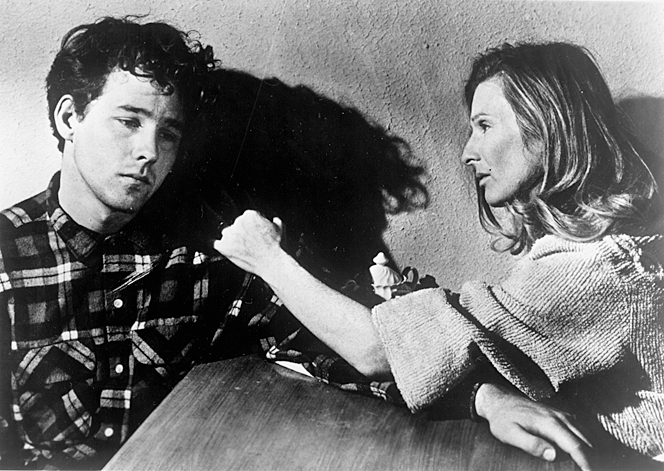A 'kiss' in the room.
With a mere running time of 81 minutes, "Elephant" is a relatively short film by today's standards. But still, its succinct study of teen angst is cinematic power at its rawest form. By using unknown actors (except for Timothy Bottoms), devious long takes and painful irony, director Gus Van Sant was able to weave a film that's subtle in its societal commentary but fully incisive in its spontaneity. Though its appeal may ostensibly look as if it's a film that merely caters to hipsters and niche teenagers, "Elephant" is really much more than that.
On one side, it is a stirring indictment of homophobia and school bullying. On the other, it's a well-realized portrait of high school life. But unlike films like "The Breakfast Club" or any other teen-oriented ones that rely on stereotypes, "Elephant" depicts its teen-aged characters not as categorized social beings but as emotionally distant and ennui-laden youngsters that are in for the whole pointlessness of it all because, hell, they don't have any choice. To channel the realistically free-flowing randomness of high school life, Gus Van Sant shot the film entirely in a series of long takes and multiple points of view to create a "Rashomon-like" perspective on things and also to give the seemingly stagnant Watt High School (fictitious) some sort of dimension.
In addition, Van Sant has also decided to shoot the majority of his characters from behind (which sometimes renders them faceless) so that, in a way, we wouldn't care for them that much when they become nothing but casualties. For me, this is particularly cruel on Gus Van Sant's part, but in some respect, it's also the rightful thing to do. He has purposefully deprived us of any of the characters' faces and back stories so that we wouldn't be attached to them that much when things go out of hand.
In the end, Van Sant has shown how fervently humanistic he is. He cares for his characters and he cares for us too. He knows that pain is just around the corner, so in an act of goodwill, he makes us see their backs, shoulders but never much their faces so that the pain of seeing them 'go' will not be too hurtful. Instead, he has focused his camera lenses precisely on the two characters whose irrational gun assault to the aforementioned high school students echoes the tragedy that is the Columbine shooting. But still, Van Sant has also depicted them in a way that’s also worthy of empathy.
Indeed, there's no denying the fact that these two students have gone out of hand in their line of thinking. In one scene, as they map out their plan for their school rampage, they have even reminded each other to 'have fun'. But looking at it, they are also victims here. So if it's not really them, who are the real culprits then? Was it their parents that are at fault here? Perhaps, but the real suspect here, aside from these two students, is mass media and the brutal extent of our homophobic society. Mass media because it is the one that has welcomed these two to the fact that shooting people is just as easy as breathing (mainly through video games), and society because it is the one that has created this notion that people who may try to come out of the closet will be utterly crucified and laughed at. That, aside from the very sight of the shooting, is what's most disturbing in the film.
"Elephant", one of the most deeply unsettling and harrowing films in recent memory, is also a very sensible, understanding and gently elegiac film that has brought these putrid social truths into the forefronts of cinematic discourse. Yes, "Elephant" is outright troubling, but it's also quite enlightening.
FINAL RATING

.jpg)




